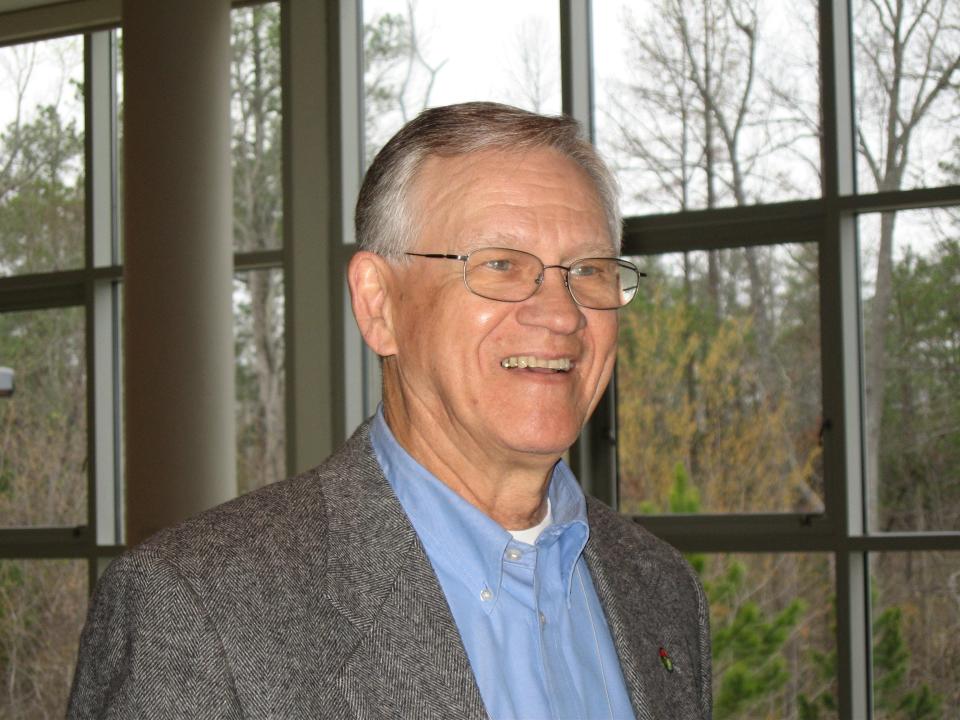Opinion: Agony and conflict between Israel and Palestine is deeply complicated
I visited Israel only once, but it has been on my heart for decades and painfully so now. The surprise attack by Hamas on a concert crowd and several towns in southern Israel was horrifically barbaric. Hundreds were murdered and hundreds more wounded, while others were captured and taken into Gaza and held captive.
It was, in the moment, an unprovoked attack, but serious provocations date back many decades, and while they in no way justify the slaughter, they put it in context. The land is a seething cauldron of mutual anger and resentment. The conflict seems intractable and has defied the best efforts of diplomacy since the nation of Israel was founded. It is the ancestral Holy Land of three religions, two of which claim it and are determined to live on it.
My personal history helps explain my deep feelings. My father was the pastor of a Protestant church in New Orleans and a friend of the rabbi of the Jewish synagogue across the street. I had many Jewish classmates through elementary and high school. Several of my teachers were Jewish, including an English teacher who knew my dad through interfaith activities.
My first awareness of the Holocaust and extermination of millions of European Jews came in a college class. I confess to having no toleration of the views of those who deny that it ever happened. I visited the Holocaust Museum in Washington, D.C., Yad Vashem, the memorial site in Israel and Auschwitz in Poland. Evidence of the genocide is overwhelming and undeniable.
After the end of World War II the United Nations declared Israel/Palestine a safe homeland for the Jewish people. It was a pledge that such an atrocity would never happen again. Palestine at the time was under the protectorate of Britain and, while there was no Palestinian government, Palestinians had been the principal inhabitants for centuries.
Thousands of Jewish people began emigrating there and a government was formed under the authority of the UN and was tasked with settling the burgeoning population of newcomers. It was chaos and displacement for Palestinians, and jubilation for the new immigrants. Each blames the other for the conflict that ensued, including numerous wars.
That one trip I made to Israel was as part of a delegation from our denomination. Our national church leaders were seeking to fathom the full depth and scope of the conflict. Before leaving we met with Jewish and Palestinian leaders in Washington, and had a briefing from a United Nations staff member on the history of the conflict and the UN’s resolutions that attempted to form a basis in international law for a just solution.
We thought we knew what we were doing. We had no idea!
One day we met with the Jewish mayor of Jerusalem. We shared our concern for justice and peace in the midst of these intractable tensions. In response he took us up on the roof of the city hall, had us survey the horizon in all directions, pointed out the newly constructed Jewish settlements on Palestinian territory, built in defiance of United Nations mandates to the contrary. He said, “Soon this land will all be Israel.”
The next day we met with the mayor of the city of Nablus in the Palestinian territory. He was pushed into the meeting room in a wheelchair by his son, who acted as translator. It was his first meeting since he lost both legs when a car bomb exploded as he started the ignition. He was weak, but talked evenly about the stringent domination of the Israeli army in the Palestinian territories, and of his conviction that the bomb had been placed by them because of his outspoken advocacy for the rights of his people.
More: Opinion: Many who claim to be Christians guilty of hyper-abusive speech
The son spoke English with an American accent, so I tried to engage in conversation with him, commenting on his language skills and on his red and white striped shirt. His response was, “Yes, I’m working on my masters in engineering at NC State.”
We learned the funding for Palestinian governments, social services and education, including studies overseas, comes from oil rich Arab states, by which Israel is surrounded. The ironies are compounded along with the pain.
Editor: Open call for women to share their voices and opinions in the Asheville Citizen Times
The ongoing conflict, including the latest horrific atrocities and the devastating Israeli response, are deeply complicated. American and other governments have exerted strenuous diplomatic efforts toward detent if not resolution. But every step forward seems followed by two steps back. All we seem able to do is condemn the barbaric attack and “pray without ceasing.”
Pray for wisdom and forbearance by our leaders, pray for the thousands of families affected by the carnage, pray for Jewish people everywhere, as well as the many Palestinians and Muslims who are aghast at the terrorists and who will be vilified because of them. We must try to understand and truthfully articulate the full scope of this dreadful reality.

Rev. Rollin Russell is a retired pastor of the United Church of Christ and of the faculty of Lancaster Theological Seminary.
This article originally appeared on Asheville Citizen Times: Opinion: Ongoing Israel-Palestine conflict is deeply complicated

